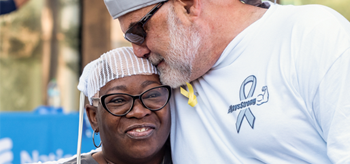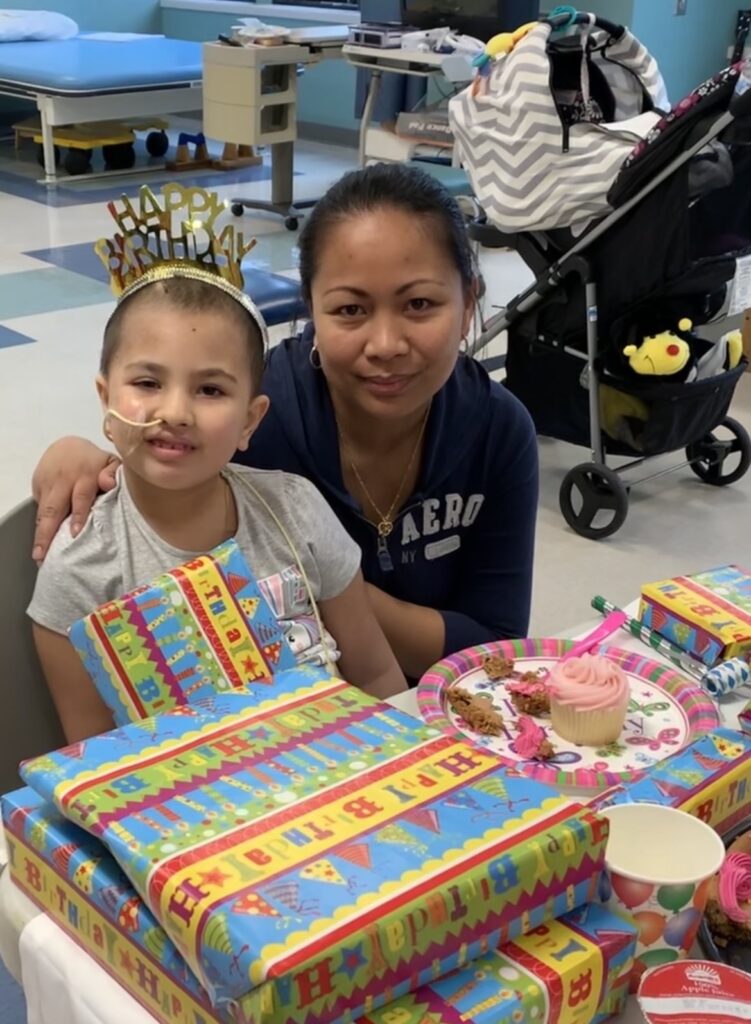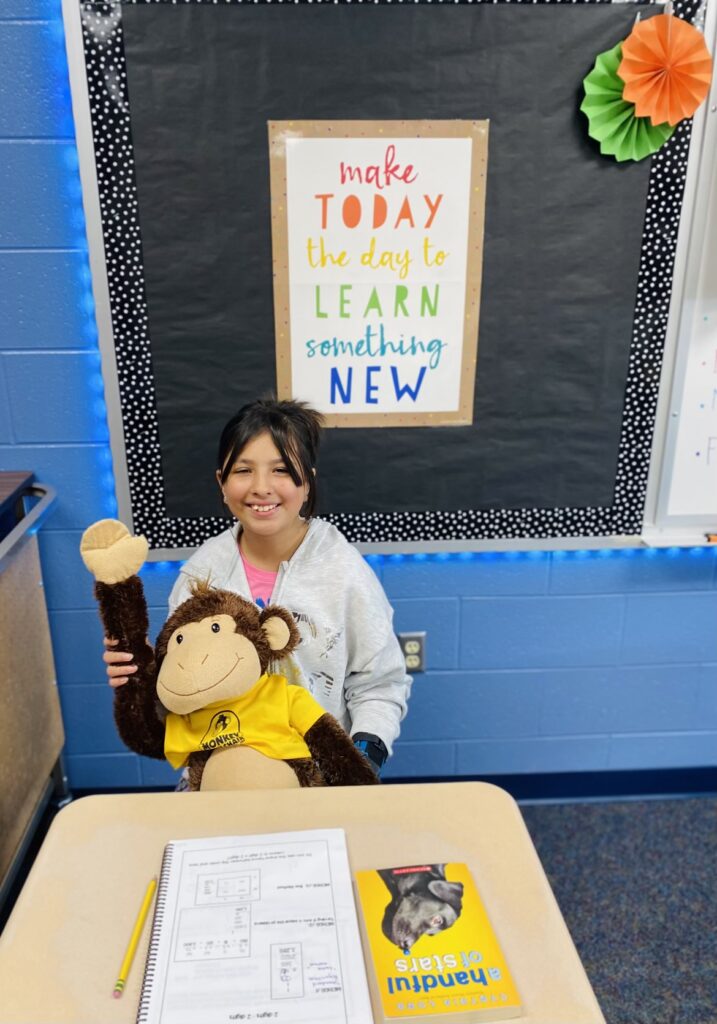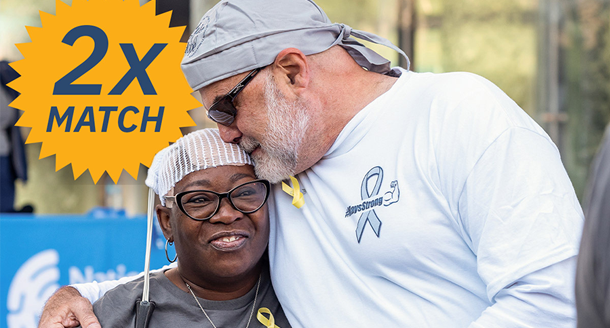Elsa’s life took an unexpected turn on Feb. 15, 2019, when she began experiencing flu-like symptoms, severe headaches, and high fevers. As a six-year-old, her family assumed it was a typical childhood illness. However, when her condition worsened, and she experienced paralysis on her left side and vision loss, they knew something was seriously wrong.
Elsa was rushed to the local ER by ambulance, where they determined she had a brain bleed called a thalamic hemorrhage, so she was airlifted to Peyton Manning Children’s Hospital — 50 minutes away in Indianapolis, Indiana. There, a pediatric neurosurgeon completed a craniectomy, a surgery similar to a craniotomy that removes a bone flap from the skull to access the brain. This procedure may be performed in emergencies to reduce swelling, pressure, and/or bleeding. Unlike a craniotomy, the bone flap is not put back at the end of the surgery. Instead, it’s left off until the brain swelling resolves.
Two days after her emergency surgery, an MRI revealed a brain tumor — later determined to be pilocytic astrocytoma — had been silently growing in the temporal lobe and the thalamus, causing the bleeding. Because of the tumor’s location, the neurosurgeon could not fully resect the tumor in order to protect Elsa’s ability to walk. She woke up from her second brain surgery in less than a week to discover left-sided weakness and the loss of her peripheral vision.
School Support
After two months of inpatient occupational and physical therapy, Elsa returned home and began chemotherapy. Throughout it all, Elsa received support from her school and hospital.
“When Elsa had her emergency surgery, I called the school,” said Elsa’s mom, Maribel. “The hospital has a teacher, so she introduced herself and explained the ‘Monkey in My Chair’ program. We signed up, and a stuffed monkey sits in place of Elsa at school while she is in the hospital.”
This program helps teachers explain the situation to their classmates and aids communication between the patient and their classroom so that the patient still feels connected to the class.
The hospital’s teacher served as a liaison between the school faculty and Elsa, helping to collect homework and act as a homebound teacher while she was in the hospital after surgery and undergoing chemotherapy. Many children’s hospitals throughout the country offer various school programs to help children and adolescents remain engaged with their schools and keep up with class work.
A Third Surgery
Elsa needed a third brain surgery in September 2021 when her tumor started to grow again. She brought her beloved rainbow stuffed dog named Nelly to provide comfort. Elsa’s medical team even wrapped Nelly’s head and placed an ID wristband on her to aid Elsa through surgery and recovery.
“I would encourage other kids to bring a stuffed animal, pray, and get friends or family to help you while you’re doing the surgery,” Elsa suggested to other pediatric patients with brain tumors.
Looking Ahead
Elsa, now 11, is a vibrant and creative fifth grader who enjoys drawing and playing video games. She continues outpatient occupational and physical therapy while attending school.
“My OT goals are to get my grip strength and be able to move my wrist so that I can carry a lunch tray and put my hair up,” Elsa said.






